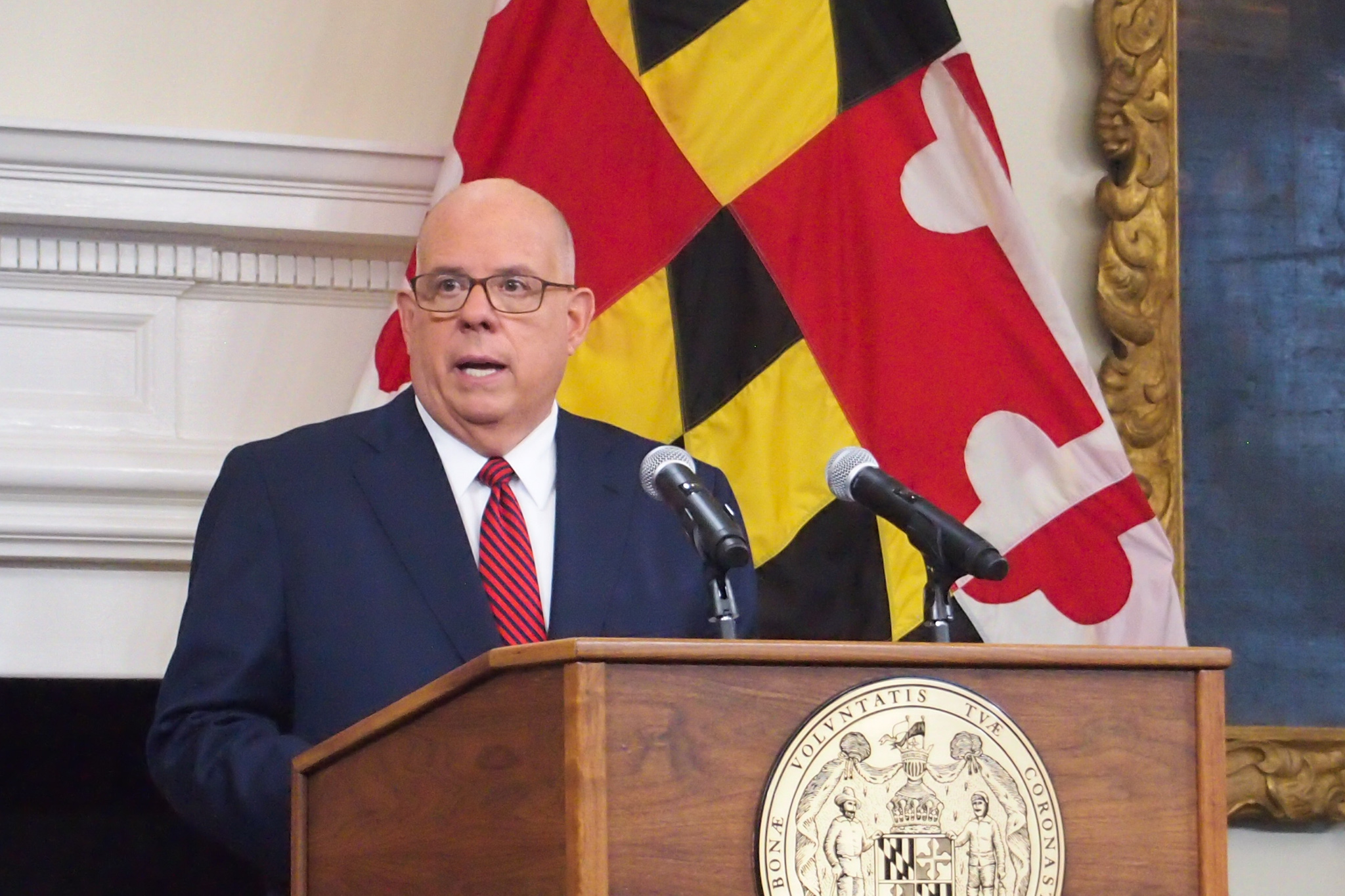Gov. Larry Hogan, R, on Thursday announced a budget framework for how he proposes to use the state’s $2.5 billion surplus, which was announced last week.
The five-point plan includes boosting the state’s rainy-day fund, tax relief for retirees, tax relief for Marylanders, help for underserved people, and “enhancement” for state employees — likely in the form of compensation.
Hogan’s plan didn’t include specifics on many of the points, which he called “broad outlines.”
“As long as I am governor, I will continue to fight for fiscal discipline,” Hogan said.
State statutes require a minimum rainy-day fund of 5% of the state’s roughly $20 billion general fund, according to the state’s Department of Budget and Management.
Hogan’s plan includes raising the fund to a goal of 7.5%, which would be approximately $1.4 billion.
On tax relief for retired people, Hogan said he thinks the budget surplus can fund something legislators have previously said was too expensive.
“Cutting retirement taxes is one of the most important things we can do,” Hogan said.
He added that he believes retired people move to the South or to nearby states with different tax structures for financial reasons.
“It’s not because they don’t want to live here,” Hogan said. “They like the quality of life.”
The governor did not offer specifics on tax relief and support for those most in need, but he touted what he called Maryland’s low eviction rate.
“We are gonna continue to help those that are struggling and in need in every way we possibly can.”
Hogan also did not go into detail about how the surplus might affect the state’s negotiations with public employee unions.
Last week Maryland Comptroller Peter Franchot, D, announced the state ended the 2021 fiscal year with a surplus of $2.5 billion.
The Board of Revenue Estimates credited the surplus in part to increased personal and corporate income tax revenue.
The COVID-19 pandemic was expected to have a negative financial effect on the state.
Hogan was elected governor after running a campaign focused on fiscal responsibility.
“Before I took office, Maryland’s economy was floundering after years of running up the credit cards,” Hogan said. In December 2014, then governor-elect Hogan complained of a $1 billion projected shortfall he inherited from the previous administration, of Martin O’Malley.
State law requires the governor to submit a balanced budget to the Legislature by mid-January.
The Legislature, where Democrats hold a supermajority, can cut but not increase the operating budget, which becomes law without further action from the governor.

